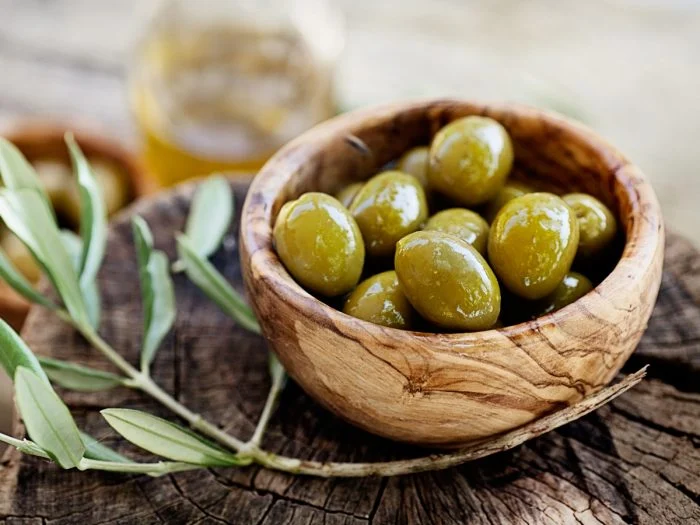Olives are a fruit which is grown in a variety of regions of the world. The fruit consists of seeds, pits, and a brine. Olives are prized for their oil, which is used in cooking or as a supplement to your diet. Olives offer a variety of health benefits as well as negative effects.
Introduction: Olives as a Nutritious Superfood
Olives are a healthy superfood with a variety in health advantages. The small, round fruits are packed with healthy fats, vitamins and minerals. They are renowned for their rich content of monounsaturated fats (MUFAs) that are thought to be healthy fats for the heart. They also contain polyphenols, plants that possess antioxidant and anti-inflammatory properties.
Consuming olives on a regular basis can help reduce the risk of developing chronic illnesses like cancer, heart disease, as well as Alzheimer’s. They also aid in healthful digestion because of their fiber content. They can also aid in weight loss because they keep you full for longer durations of time. Furthermore, olives may boost bone health because of the calcium they contain.
Although olives are loaded with health advantages, it’s important to be aware that they may cause adverse effects if consumed in large quantities. Consuming large quantities of olives may cause digestive problems like gastric issues or diarrhea due to their high levels of salt. It is advised to take olives in moderation in a healthy diet to reap maximum health benefits.
Nutritional Value of Olives and Their Role in a Healthy Diet
Olives are small oval-shaped fruit that originate from the olive tree. They’ve been a staple of Mediterranean food for a long time, and are now consumed all over the globe. Olives are a great source of healthy monounsaturated fats that aid in lowering cholesterol levels and lower the risk of developing heart disease. They also contain antioxidants, such as vitamin E that protect cells from the damage that is caused by free radicals.
In addition to their nutritional value olives also contribute to the healthy eating plan due to their flexibility in cooking. They can be consumed by themselves as a snack, or as a component of pizzas, pasta dishes, or sandwiches to add flavor and nutrients. It is vital to keep in mind that olives are high in sodium and must be taken in moderation by those who suffer from high blood pressure.
In the end, including olives in your diet is a wise option when you’re looking for healthy and tasty options to spice up your meals, while ensuring healthy habits.
11 Health Benefits of Consuming Olives Regularly
Olives, the tiny fruit that is delicious and frequently used in Mediterranean food, offer a variety of health advantages. They are an excellent source of antioxidants and healthy fats. Olives have been proven to decrease inflammation in the body. This can aid in preventing chronic illnesses like cancer and heart disease. They also contain substances that can lower cholesterol and blood pressure levels.
Regular consumption of olives has been associated with improved digestion and overall health of the gut. This is due to the fact that olives are high in fiber as well as other nutrients that nourish beneficial bacteria within the gut. Furthermore, olives have significant amounts of Vitamin E. This vitamin is essential for hair and skin health.
The inclusion of olives in your diet is simple – include them in salads or pasta dishes, serve as pizza toppings or eat them on their own. Whatever way you decide to eat olives, be sure to select high-quality olives free of added sugars or preservatives to reap the maximum benefits for your health.
Potential Side Effects of Eating Olives and How to Avoid Them
Although olives have many health benefits, eating excessive amounts could cause some negative consequences. The most frequent adverse effects of taking olives for a meal is diarrhoea, as they are a rich source of fiber, which can impact digestion. To prevent this from happening you should gradually increase the amount of olives, and consume plenty of fluids all day long.
Another possible side effect of eating olives is that they’re rich in sodium that could lead to an increase in blood pressure. People who suffer from hypertension or are at risk of developing it should reduce their consumption or choose alternatives that are low in sodium.
Additionally, certain people may have allergic reactions to eating olives because of their high levels of histamine. The symptoms can range from minor redness and itching to more serious reactions like swelling and difficulty breathing. It is essential to know about any allergies prior to introducing a large amount of a new food item into your diet.
The Benefits of Olive Oil for Skin and Hair Care
Olive oil is a great natural ingredient for hair and skin treatment. It’s packed with antioxidants, vitamins, and healthy fat acids that nourish hair and skin. Vitamin E in olive oil can help shield the skin from damaging UV rays and keeps it hydrated. In addition its anti-inflammatory properties help calm irritated or swollen skin.
The use of olive oil as an oil treatment for hair can help reduce dandruff and improve the health of your scalp. It is also an excellent conditioner that nourishes hair, without leaving leftover. Regularly applying olive oil to the scalp will increase blood circulation, which can stimulate the growth of healthy hair.
In the end, incorporating olive oil in your hair and skincare regimen can prove to be extremely advantageous due to the many advantages for both. It is important to keep in mind the fact that all olive oil isn’t created to be equal. Choosing a high-quality extra-virgin olive oil can be essential when it comes to using it for cosmetic reasons to benefit from its full potential.
Using Olives in Cooking: Delicious Recipes and Ideas
Olives are an ingredient that is versatile that can be utilized in many recipes, from salads and pasta, to sandwich and pizza. They not only enhance the taste of meals however, they also provide many health benefits. Olives are a great source of good fats and antioxidants, and vitamin E. These helps lower cholesterol levels, ease inflammation, and improve the immune system.
A delicious idea for a recipe is to prepare an olive tapenade by mixing together pitted olives, capers, garlic, lemon juice, as well as olive oil. The spread can be used to top Crostini, or as dip for vegetables. Another option is to fill olives with cheese or roast red peppers to make a simple appetizer.
Although olives are loaded with benefits for health when taken in moderate amounts, it is important to remember that they’re high in sodium and might not be appropriate for people who are following a low-sodium diet. In addition, some individuals may have digestive issues after eating huge quantities of olives because of their fiber content. Like any other food or component, it’s recommended to consume olives in moderation. You should consult your doctor if you are unsure about including olives in your diet.
Conclusion: Making Olives a Part of Your Healthy Lifestyle
In the end, incorporating olives into your daily diet will provide many health benefits. Olives are rich in good fats, antioxidants and healthy oils which can reduce inflammation and reduce the risk of developing chronic illnesses like cancer, heart disease, and diabetes. They also have minerals and vitamins that aid in the health of bones, aid digestion, and increase immunity.
However, it is crucial to keep in mind that olives are rich in sodium and should be consumed with caution particularly for those with hypertension or an antecedent history of heart disease. In addition, certain people could suffer adverse side effects like digestion issues or allergic reactions after eating olives.
In the end, including olives as an element of your balanced diet could improve overall health and well-being. It is suggested to go for organic or minimally processed olives instead of canned ones that may have preservatives or salt. So, go ahead and include some tasty olives in your dishes today!
FAQ’s
Q: What are the benefits to health from olives?
The olives loaded with healthy fats antioxidants, anti-inflammatory and antioxidant compounds which can aid in preventing chronic illnesses like cancer, heart disease and diabetes. Certain studies suggest that eating olives can also boost brain function, prevent osteoporosis, and help maintain a healthy digestive system. Furthermore, olives have high levels of vitamin E, which helps maintain healthy skin.
Q Do you know of any adverse consequences to taking olives?
A: Although there are numerous benefits to eating olives, they might not be appropriate for all. Olives are rich in sodium, which can cause high blood pressure in certain people. In addition, people suffering from IBS, irritable bowel syndrome (IBS) or any other digestive problems may discover it difficult to digest the fibre content of olives can aggravate their symptoms. Like any other food or supplement, it’s essential to speak with a medical expert if you are concerned regarding adding olives to your diet.
Question: What is the best way can I include olives in my diet?
Q: You can find a variety of ways to reap all the benefits olives have to offer! They can be added to sandwiches or salads for an easy and quick increase in flavor and nutrients. They are also a fantastic snacks on their own, or when paired with nuts or cheese.





